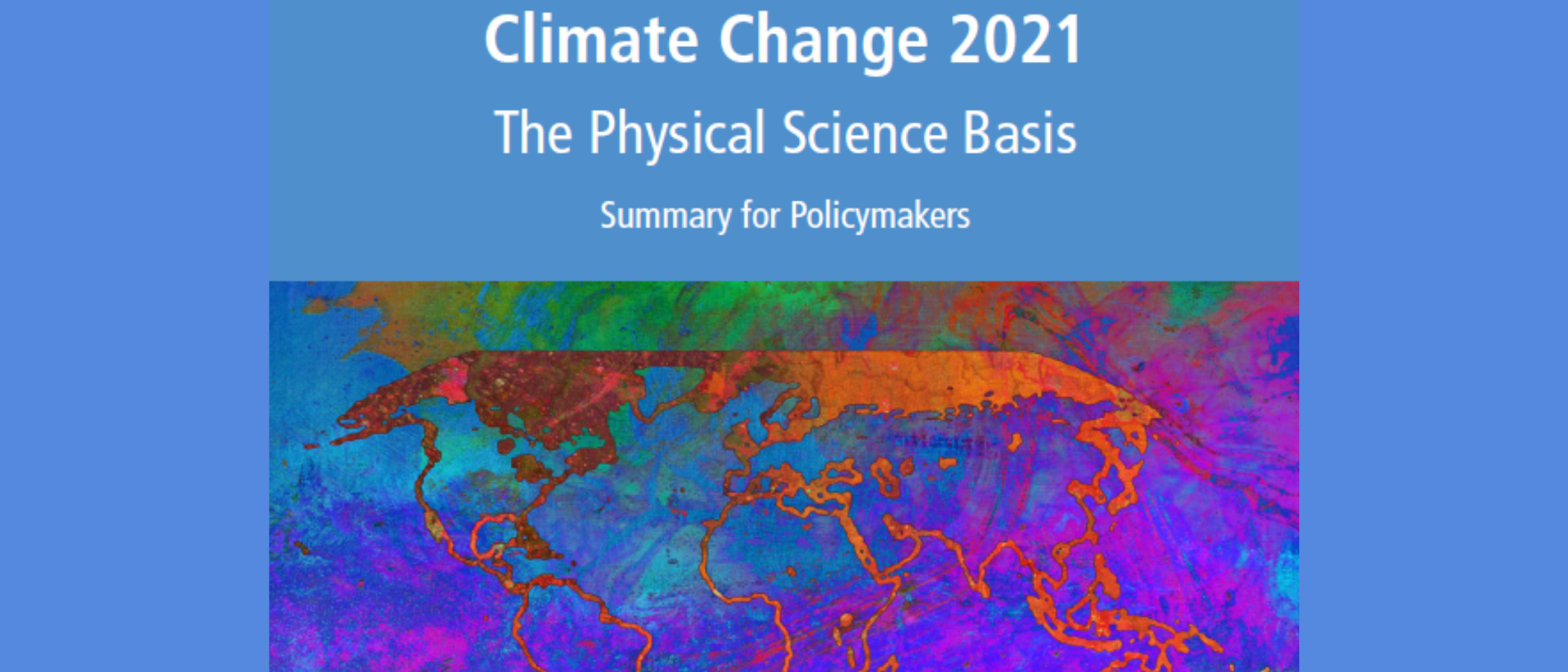

IPCC’s Climate Report Published
AR6 - CLIMATE CHANGE 2021: The Physical Science Basis
The latest Intergovernmental Panel on Climate Change (IPCC) climate report, prepared by a diverse team of 234 authors from 66 countries, finds that it is unequivocal that human influence has warmed the atmosphere, ocean and land at a rate that is unprecedented in at least the last 2,000 years. Global warming of 1.5°C and 2°C will be exceeded during the 21st century unless deep reductions in CO2 and other greenhouse gas emissions occur in the coming decades.
However, strong and sustained reductions in emissions of carbon dioxide (CO2) and other greenhouse gases would limit climate change. While benefits for air quality would come quickly, it could take 20-30 years to see global temperatures stabilize.
The IPCC is the UN body for assessing the science related to climate change. IPCC assessments provide governments, at all levels, with scientific information that they can use to develop climate policies and carry out international negotiations to tackle climate change.
The IPCC assesses the thousands of scientific papers published each year to tell policymakers what we know and don’t know about the risks related to climate change. The panel identifies where there is agreement in the scientific community, where there are differences of opinion, and where further research is needed.
“This report reflects extraordinary efforts under exceptional circumstances,” said Hoesung Lee, Chair of the IPCC. “The innovations in this report, and advances in climate science that it reflects, provide an invaluable input into climate negotiations and decision-making.”
Human-induced climate change is already affecting many weather and climate extremes in every region across the globe. Evidence of observed changes in extremes such as heatwaves, heavy precipitation, droughts, and tropical cyclones, and, in particular, their attribution to human influence, has strengthened since the last report - AR5.
Hot extremes have become more frequent and more intense across most land regions since the 1950s, while cold extremes have become less frequent and less severe, with human-induced climate change as the main driver of these changes. Some recent hot extremes observed over the past decade would have been extremely unlikely to occur without human influence on the climate system. The same is reported for the frequency and intensity of heavy precipitation events, droughts on a global scale and fire weather in some regions of all inhabited continents.
The report provides new estimates of the chances of crossing the global warming level of 1.5°C in the next decades and finds that unless there are immediate, rapid and large-scale reductions in greenhouse gas emissions, limiting warming to close to 1.5°C or even 2°C will be beyond reach.
The report shows that emissions of greenhouse gases from human activities are responsible for approximately 1.1°C of warming since 1850-1900, and finds that averaged over the next 20 years, global temperature is expected to reach or exceed 1.5°C of warming. This assessment is based on improved observational datasets to assess historical warming, as well as progress in scientific understanding of the response of the climate system to human-caused greenhouse gas emissions.
“This report is a reality check,” said IPCC Working Group I Co-Chair Valérie Masson-Delmotte. “We now have a much clearer picture of the past, present and future climate, which is essential for understanding where we are headed, what can be done, and how we can prepare.”
For the first time, the Sixth Assessment Report provides a more detailed regional assessment of climate change, including a focus on useful information that can inform risk assessment, adaptation, and other decision-making, and a new framework that helps translate physical changes in the climate – heat, cold, rain, drought, snow, wind, coastal flooding and more – into what they mean for society and ecosystems.
This regional information can be explored in detail in the newly developed Interactive Atlas interactive-atlas.ipcc.ch as well as regional fact sheets, the technical summary, and underlying report.
The new report also reflects major advances in the science of attribution – understanding the role of climate change in intensifying specific weather and climate events such as extreme heat waves and heavy rainfall events.
The report also shows that human actions still have the potential to determine the future course of climate. The evidence is clear that carbon dioxide (CO2) is the main driver of climate change, even as other greenhouse gases and air pollutants also affect the climate.
“Stabilizing the climate will require strong, rapid, and sustained reductions in greenhouse gas emissions, and reaching net zero CO2 emissions. Limiting other greenhouse gases and air pollutants, especially methane, could have benefits both for health and the climate,” said IPCC Working Group I Co-Chair Panmao Zhai.
You can read the full report here
Virtual Event on the IPCC Assessment Report
The 6th Major IPCC Science Report and its implications
Date: 15 September 2021
This meeting will review the reports main findings and consider what it means for the ongoing development of our response to climate change. It will also consider what message the report sends to world leaders before they meet in Glasgow at COP26. Speakers and panellists will include leading scientists involved in the report, as well as those who are actively involved with making decisions on climate change actions.
This event will be complemented by a separate interactive deep-dive session targeting specific sectors and what the report means for them.
The programme will be announced later this week.
To register for this FREE event, please visit our event page here.

